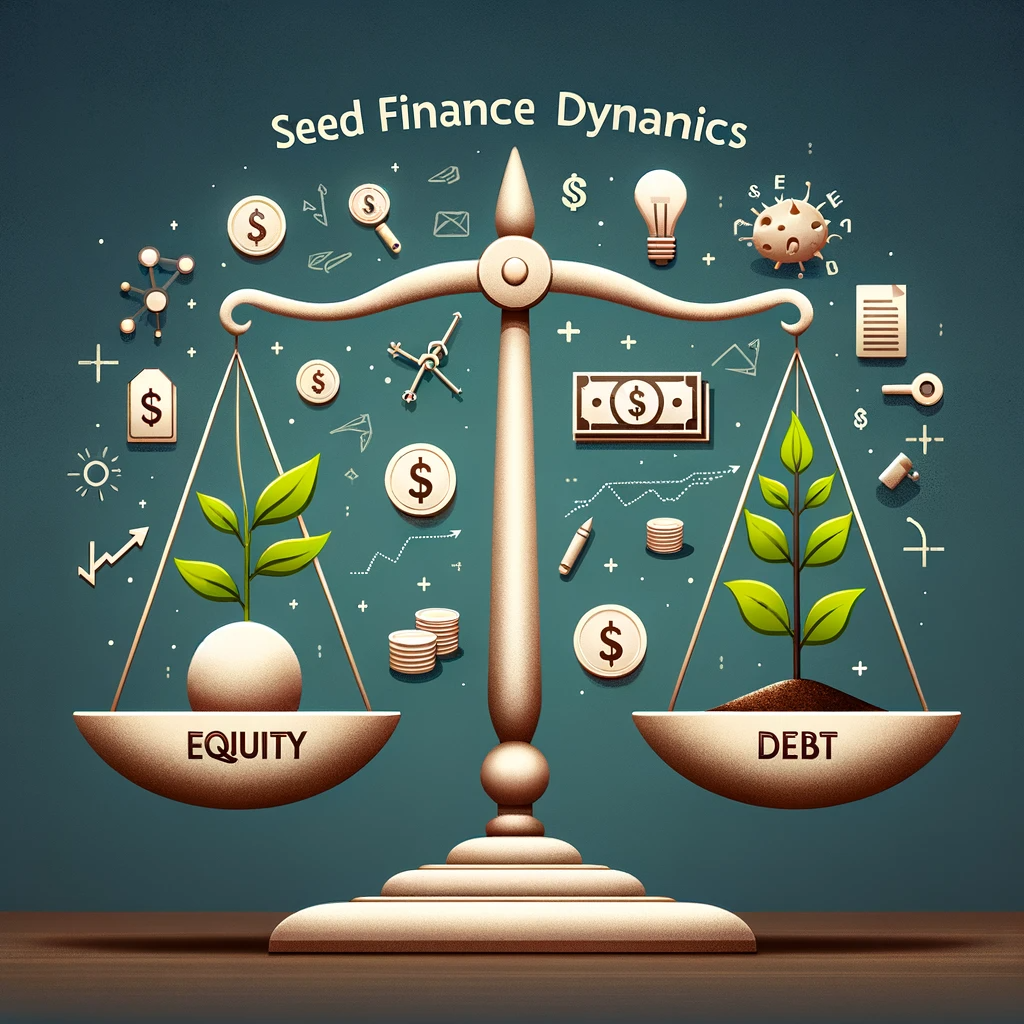
Estimated reading time: 4 minutes
Introduction to Seed Finance Dynamics
Seed finance represents a vital crossroad in the journey of a startup, where critical decisions are made that shape its future. This initial stage of financing is crucial, as it sets the tone for the company’s growth, valuation, and operational dynamics. Understanding the nuances of seed finance is essential for any entrepreneur looking to navigate this complex landscape successfully.
Table of contents
- Introduction to Seed Finance Dynamics
- Overview of Funding Structures
- Equity Financing: Trade-offs and Considerations
- Debt Financing: Balancing Repayment and Control
- The Role of Grants in Seed Financing
- Analyzing the Implications of Different Funding Structures
- Strategic Decision Making in Seed Finance
- Equity Financing: Navigating Dilution and Investor Expectations
- The Pressure of Debt Financing on Startups
- Grants: Opportunities and Limitations
- Impact on Future Funding Rounds
- Case Studies: Success and Challenges in Seed Financing
- Legal and Financial Considerations in Seed Finance
- Trends and Innovations in Seed Financing
Overview of Funding Structures
Startups typically have three primary avenues for seed finance: equity financing, debt financing, and grants. Each of these options comes with distinct characteristics, advantages, and challenges that need careful consideration based on the startup’s unique needs and long-term objectives.
Equity Financing: Trade-offs and Considerations
Equity financing involves trading a portion of ownership in the startup for capital. This option can lead to dilution of the founders’ stakes but often comes without the immediate financial burden of repayment, as seen in debt financing. However, it can also mean relinquishing some degree of control and facing investor expectations.
Debt Financing: Balancing Repayment and Control
Debt financing, which includes loans and convertible notes, requires repayment with interest. While it poses a financial obligation, it allows founders to maintain more control over their company, as they do not have to give up equity. However, the financial pressure of repayment can be significant, especially for early-stage startups.
The Role of Grants in Seed Financing
Grants are a less common but valuable source of seed finance. They offer non-repayable funds, usually tied to specific conditions or milestones. While grants do not dilute ownership or require repayment, they often come with stringent requirements that must be met.
Analyzing the Implications of Different Funding Structures
Choosing between equity, debt, or grants has significant implications for a startup’s valuation, ownership structure, and control dynamics. This choice not only affects the startup’s immediate financial health but also its strategic direction and appeal to future investors.
Strategic Decision Making in Seed Finance
The decision-making process in choosing the right form of seed finance is strategic and multifaceted. Startups must weigh their immediate financial needs against their long-term goals, considering how each option will impact their growth trajectory and operational freedom.
Equity Financing: Navigating Dilution and Investor Expectations
With equity financing, startups must navigate the challenges of dilution and managing investor expectations. Balancing the interests of founders and investors is crucial to maintaining a harmonious and productive relationship that benefits the startup’s growth.
The Pressure of Debt Financing on Startups
Debt financing, while preserving equity, brings its own set of pressures, primarily financial. Startups must carefully structure their debt to ensure they can support growth while managing repayment obligations.
Grants: Opportunities and Limitations
Grants provide an opportunity for startups to secure funding without the downsides of equity dilution or debt repayment. However, aligning with the specific requirements and conditions of grants can be challenging and may limit the startup’s operational flexibility.
Impact on Future Funding Rounds
The initial choice of seed financing significantly influences a startup’s attractiveness in future funding rounds. Investors closely evaluate the company’s capital structure and ownership distribution when considering further investments.
Case Studies: Success and Challenges in Seed Financing
Examining real-world case studies of successful startups and the challenges they faced in their seed financing decisions can provide valuable insights and lessons for emerging entrepreneurs.
Legal and Financial Considerations in Seed Finance
Navigating the legal and financial aspects of seed financing is a critical component. Startups must understand and negotiate terms that protect their interests and support their long-term growth.
Trends and Innovations in Seed Financing
The landscape of seed financing is continually evolving, with new trends and innovative approaches emerging. Keeping abreast of these changes is vital for startups looking to make informed financing decisions.
Conclusion
Seed finance is a pivotal aspect of a startup’s development, with far-reaching implications on its future. Understanding the dynamics of seed finance is crucial for startups to make informed decisions that align with their vision and strategic goals.








Leave a Reply